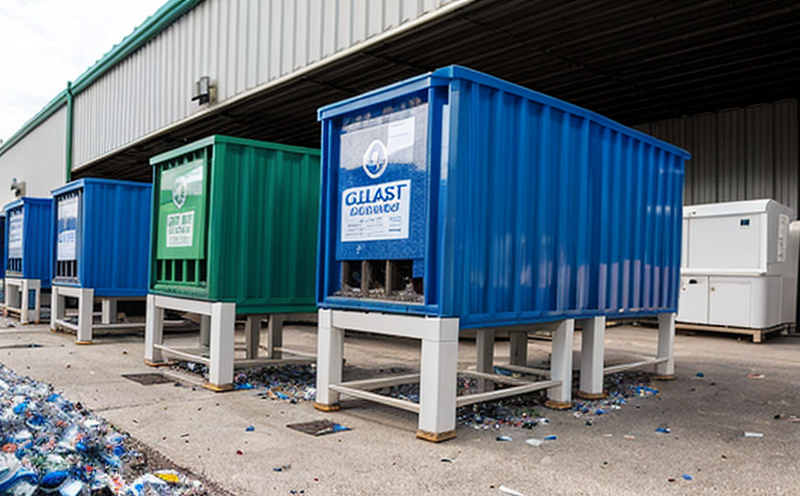EN 12934 Ceramic Waste Fracture Toughness
The European Standard EN 12934 defines a method to determine the fracture toughness of ceramic waste materials. This property is critical for understanding how brittle materials will behave under stress, particularly in recycling processes where ceramics are broken down into smaller particles or powders. Understanding fracture toughness allows for optimizing the recycling process to minimize energy consumption and maximize material recovery.
The standard applies to a wide range of ceramic waste products found in various industries, including construction, manufacturing, and electronics. The testing methodology involves subjecting specimens cut from the waste stream to controlled loading until they fail. Specimens are typically thin plates or discs, with dimensions specified by the standard. The goal is to measure the energy absorbed during cracking, which directly correlates with the material's fracture toughness.
Accurate specimen preparation is crucial for reliable results. This involves cleaning and conditioning the waste materials to ensure homogeneity and consistency in thickness. Specimens are then carefully cut according to EN 12934 guidelines using diamond saws or other precision cutting tools. The specimens must be free from cracks, voids, or other defects that could influence test results.
The testing equipment used is a four-point bending machine designed specifically for this type of ceramic material. The machine applies controlled stress to the specimen until it fractures. High-precision displacement and force sensors measure the load and deflection during the breaking process. This data is then analyzed using fracture mechanics principles to calculate the fracture toughness value.
Once testing is completed, Eurolab's state-of-the-art laboratories provide comprehensive reports detailing all test parameters, including specimen dimensions, loading conditions, and resulting fracture toughness values. These reports are invaluable for quality managers and compliance officers looking to ensure their processes meet regulatory standards or internal specifications. For R&D engineers, this information can be used to refine recycling techniques and improve material performance.
Compliance with EN 12934 is essential for companies operating within the European Union’s framework on waste management and recycling. This standard ensures that materials are properly characterized before they enter the recycling stream, promoting more efficient waste processing and reducing environmental impact. By adhering to this standard, organizations can demonstrate their commitment to sustainability and regulatory compliance.
Additionally, understanding fracture toughness helps in optimizing energy consumption during grinding processes. Higher toughness values indicate harder materials that require more energy to break down, influencing the design of machinery used in recycling plants. This knowledge also aids in selecting appropriate additives or binders that enhance the recycled ceramic’s performance properties after processing.
Industry Applications
The primary application is within the construction and manufacturing sectors where ceramics are frequently produced as by-products during production processes.
In electronics, it helps in assessing the durability of ceramic components used in circuit boards and other critical parts.
It also finds use in environmental engineering for characterizing waste streams that contain significant amounts of ceramics.
Competitive Advantage and Market Impact
Eurolab's expertise in this area positions us as leaders in ceramic recycling testing, offering unparalleled accuracy and reliability.
This capability enhances client’s ability to stay compliant with stringent European regulations on waste management while also improving operational efficiency.





